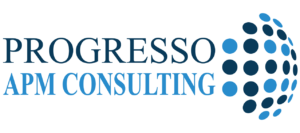European Quantum Excellence Centres (QECs) in applications for science and industry
Deadline: 14 May 2024
Expected outcome:
The creation of two European Quantum Excellence Centres in applications, covering science and industry, will establish a one-stop-shop for industry, academia, and the wider quantum technology user community. This in turn will accelerate the discovery of new quantum- oriented applications and foster their knowledge and uptake. The QECs should be technology-agnostic with a focus on quantum applications for end-users in science and industry. They should also be user-driven and inherently committed to co-designing activities, to ensure that the future quantum computing architectures are well-suited for the application of their users, providing them with a high performance and scalable application base.
QECs should contribute to a library of a new quantum applications and open source software platforms used for building quantum computing and stimulation applications for specific areas. QECs should provide services supporting different usage models for the community needs, including developing, maintaining, optimising and scaling quantum applications, addressing the full scientific/ industrial workflow, testing and validating codes and quality assurance.
QECs should also create meeting places for users and organisations working on similar nascent technologies and offer specialised training and capacity building measures to develop the human capital resources for increased adoption of quantum computing in industry and academia.
QECs should contribute to a library of a new quantum applications and open source software platforms used for building quantum computing and stimulation applications for specific areas. QECs should provide services supporting different usage models for the community needs, including developing, maintaining, optimising and scaling quantum applications, addressing the full scientific/ industrial workflow, testing and validating codes and quality assurance.
QECs should also create meeting places for users and organisations working on similar nascent technologies and offer specialised training and capacity building measures to develop the human capital resources for increased adoption of quantum computing in industry and academia.
Scope:
The applications and software to be developed should be platform-agnostic, with plans to test their correct functioning on as many EuroHPC quantum computing platforms as possible. Proposals should include a strategy for skills development, associating required stakeholders when relevant, and plans to allow users from different backgrounds to register and receive support for their issues while experimenting with different quantum computing platforms.

